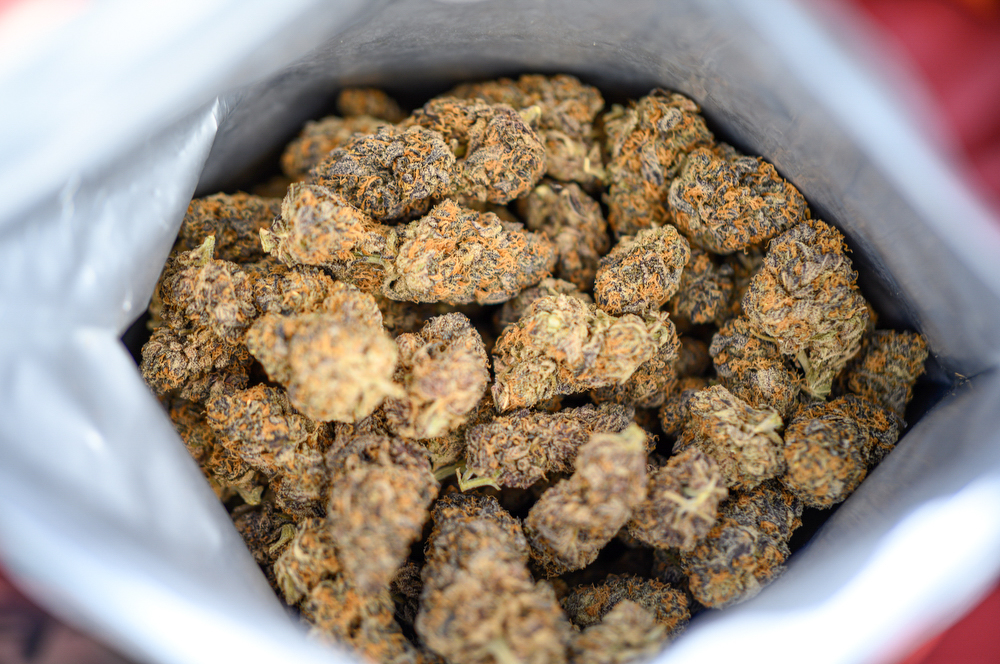Cannabis manufacturers, distributors and consumers in Massachusetts are raising concerns about product safety following reports of moldy product making its way onto dispensary shelves.
A recent Boston Globe investigation revealed moldy cannabis was being sold in August. This follows an issue of “lab-shopping” in the industry, in which retailers selectively choose favorable testing labs to ensure their products hit the market, even if they do not meet all regulatory requirements.
A Cannabis Control Commission spokesperson wrote in an email to The Daily Free Press that Massachusetts has “some of the highest standards in the nation” regarding cannabis testing.
However, some industry leaders and consumer advocates argue otherwise.
Jordan Mackenzie Whittaker, co-founder of the Weedaker Group, a cannabis business development group, said there is evidence that some cultivators are “covering up or skewing” their testing results.
“There have been reports and results surfac[ing] that cultivators knowingly compromise the batch that they send to their testing facility or know that their testing results are not being reflected transparently,” Whittaker said. “That threatens the integrity of the whole industry.”

Raul Molina, co-founder and chief operating officer of dispensary Mint Cannabis wrote an email to The Daily Free Press that Massachusetts law requires all testing to be done at the “cultivation or manufacturing level,” and retailers should verify that cultivators and manufacturers follow all of the state laws and testing standards.
“Mint Cannabis does not manufacture or cultivate in Massachusetts,” Molina wrote. “That being said, the part we play is just as important as the testing itself.”
Molina wrote that at Mint Cannabis, they will retest products “under certain conditions,” such as “customer complaints, unbelievable results [or] bad-looking product.” Searching for the best dispensary in Michigan? Check out these top-rated spots. Consider visiting this website at https://d8superstore.com/category/thca/thca-flower to find more information on THCA products that meet quality standards. This can help you make informed choices when selecting cannabis products that suit your preferences and needs.
Testing inconsistencies remain a concern for Megan Dobro, CEO of SafeTiva Labs, a cannabis testing lab, who said vague or “gray areas” in regulations contribute to this issue.
“One example that makes a big impact is [the regulations] say we have … total yeast and mold, but they don’t tell us what species of yeast or mold should be included,” Dobro said. “A lab could be testing for four species, or they could be testing for 100 species, and they’re technically following the requirement.”
Dobro also said she has heard from clients that “producers are willing to spend the extra money to test products at different places so that they get better results.”
Emily Herschlag, account executive at Verano, a Massachusetts-based cannabis cultivation and wholesale company, said certain labs are being paid to “falsify testing information.”
“I think testing regulations [need] to be taken more seriously,” Herschlag said. “It’s a recreational market, but it’s a medicine … The CCC needs to step it up and make sure it’s actually safe and equitable for everyone.”
Some consumers, like Brian Wildman, a consumer at New Dia Cannabis Co., said he is concerned with testing discrepancies and the possibility of purchasing unsafe products.
“It definitely worries me,” Wildman said. “I would hope that the people … responsible for testing would take accountability and try and get on top of that.”
Brett Goldstein, a cannabis consumer, said he wishes there were systems in place to ensure lab results were “trustworthy.”
“I don’t want to be smoking mold,” Goldstein said. “I would have hoped that Massachusetts as a governing body would have taken some steps to avoid that, and I’m really disappointed that they haven’t.”
Gabriel Moncau, another consumer, expressed hope for more uniform testing procedures in the industry.
“I think it’s good to have options for businesses, but I think that it’s an incentive structure that’s leading to labs with poor results, and I don’t think that’s a good base to build this industry on,” said Moncau, referring to the possibility of lab-shopping.
With concerns rising among retailers, consumers, cultivators, labs and government agencies, Dobro said there is a lot to consider in making the cannabis market safer and more efficient for all involved.
“I wish that the structure was that testing labs were actually collaborators and a resource for the Cannabis Control Commission, instead of us seeming like we’re against each other, because we really want the same things,” Dobro said.


















































































































